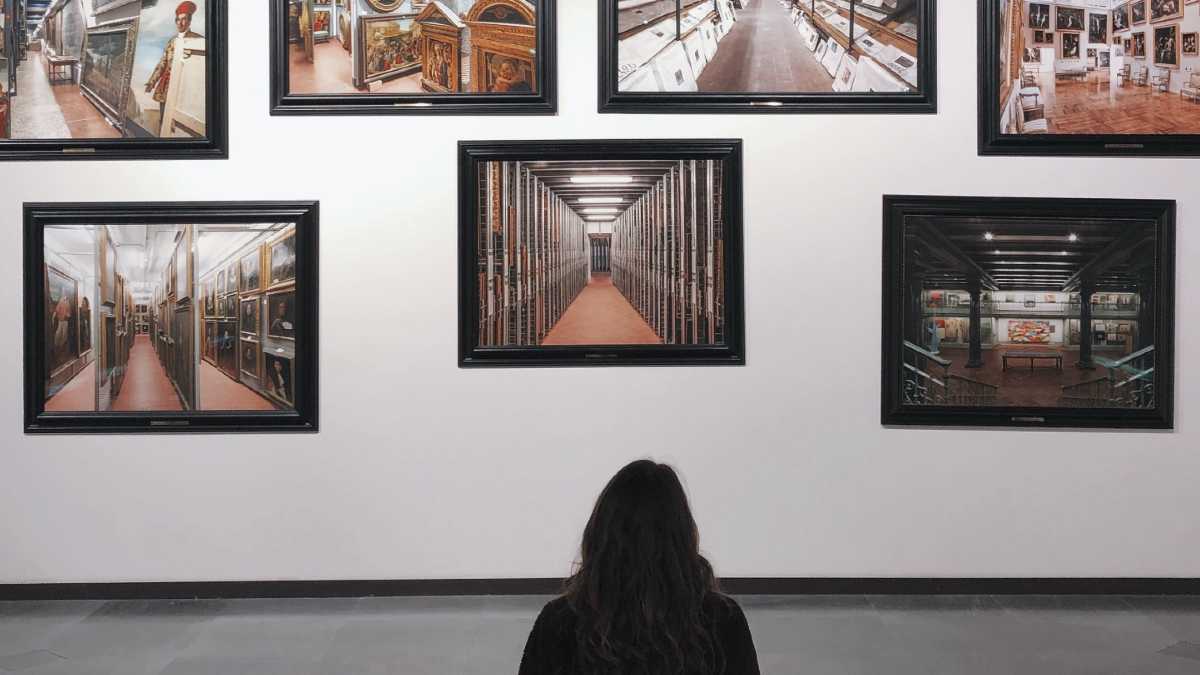
The Surprising Link Between Art Museums And Mental Health
A new study suggests that visiting art museums can help you lead a happier and more balanced life.

By Mark Travers, Ph.D. | April 19, 2022
A new study appearing in the Journal of Positive Psychology explains how consuming art in a museum can help you reduce stress, counteract loneliness, and make life feel a bit more meaningful.
"I've always found art museums to be calming and engaging environments, so as I began conducting research in psychology I wanted to better understand people's experiences with the arts and visiting art museums," says researcher Katherine Cotter from the University of Pennsylvania. "I personally have always been restored after visiting an art museum, and as I saw programs offered by museums popping up geared toward flourishing, it seemed natural to dig in deeper and explore the connections between art museums and flourishing."
According to Cotter's research, flourishing is defined as an umbrella term that includes two components:
- Well-being refers to the development of strengths, meaning, and positive states. This includes cultivating positive relationships with others in your life, experiencing positive emotions, or feeling engaged in your life and experiences.
- Ill-being refers to the presence of diseases, disorders, and negative states.
According to Cotter, in order to assess one's quality of life holistically, we must consider both components of flourishing.
Cotter and her team identified three major benefits that we can gain from frequent visits to an art museum after conducting an extensive literature review and thorough evaluation of art museum-based programs:
- It is a rewarding experience. Visiting art museums elicits positive emotions and fosters feelings of engagement, resulting in a higher quality of life.
- It reduces cortisol levels. Visiting an art museum can help us reduce stress because it immediately decreases the production of cortisol (a stress hormone) in our bodies.
- It combats isolation. Museums, both the artworks and the visitors, can make us feel more connected and less isolated. It may even result in the formation of a like-minded community.
While researchers continue to seek concrete explanations for why art has this effect on our mental health, Cotter expands on a few hypotheses, which are listed below:
#1. Art museums help us engage in reflective thinking
Visiting a museum can also induce reflection and contemplative states, which allow us to think about ourselves and our lives in new ways, form new connections, and be exposed to new perspectives.
"Because we're able to disengage from the outside world a bit, our minds can travel new paths and help us to gain new perspectives," says Cotter.
#2. Art museums help us feel immersed
Because an art museum is not a place that most people visit on a regular basis, it is natural for us to feel transported into another world when we do visit one.
"We might lose track of time or find ourselves absorbed in a particular work during our visit. In our everyday lives, we probably aren't having these sorts of experiences too often, so in this sense it makes the museum a unique space. Through these forms of immersion, we may boost our positive emotions or feel a bit more alive," states Cotter.
How to visit an art museum
If you are someone who feels intimidated visiting an art museum, Cotter has the following advice:
- Participate in a guided tour of the museum. Guided tours can provide information about a variety of artworks as well as tips or ideas for how to look at art.
- Don't overthink things. Cotter reminds us that there is no correct or incorrect way to view art. Simply look at a piece of art and ask yourself the following questions: What do you think of the artwork? Why? Is it reminiscent of anything or eliciting any emotions in you?
"A big part of enjoying art is being open to the experience and realizing that it's okay if you don't 'get' an artwork or find it confusing," says Cotter. "I go to the museum and that happens to me all the time. Going to the art museum does not require any knowledge about art or art history to have an enjoyable and meaningful visit."
A full interview with Katherine Cotter discussing her new research on art museums and mental health can be found here: Is art the answer to our mental health problems?
